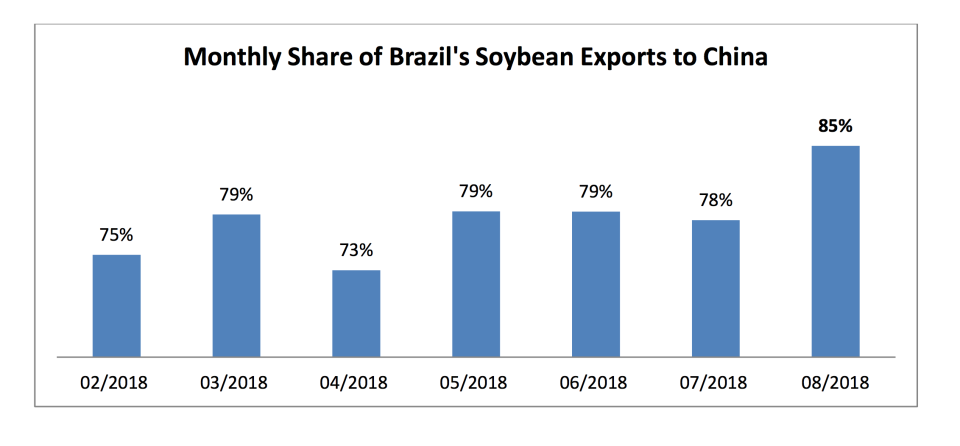US-China trade war winner: Brazil soybean exports
The ongoing U.S.-China trade war has been a good thing for Brazil’s soybean market.
China, which uses one-third of the world’s soybeans, imported 89% of its soybeans from the U.S. and Brazil last year, according to the American Farm Bureau Federation. And since China has slapped a 25% tariff on U.S. soybeans in retaliation for tariffs levied by U.S. President Donald Trump on China goods, that percentage will likely shift to Brazil. China has already become less reliant on the U.S. for soybeans. Last year, Brazil was China’s largest soybean exporter with 54 million metric tons, followed by the U.S. at 32 million metric tons.

Brazil President Michel Temer told Yahoo Finance at an event Monday that was a part of the United Nations General Assembly that he has already been in talks with China President Xi Jinping about closer cooperation. Temer said he spoke to Xi about the soybean market and other issues on the sidelines of the 10th BRICS summit last month.
“When I was with president Xi Jinping in Johannesburg, I put in a program for soy, not just soybeans, but manufactured goods like soybean oil and soybean meal and president Xi said he would examine the issue,” said Temer. “I have the impression that it will proceed and it will increase.”
Brazil’s soybean exports to China have already been increasing. The U.S. Department of Agriculture said the share of Brazil’s soybean exports destined for China was 85% in August, up from 78% in July.

While the trade war is beneficial to Brazil, Eduardo Guardia, Brazil’s finance minister, said his country supports free trade.
“We can do the math and show that in the short-run we are winning commercially with the rise of tariffs, but the position of the Brazilian government has always been one of free trade so that we can develop free trade and Brazil can integrate more and more into international commerce,” said Guardia. “Even though we will benefit in the short-term, I believe this kind of commercial war isn’t good for the world economy and consequently for Brazil, even though we are benefiting right now.”
Maylan Studart is a reporter for Yahoo Finance
Read more
Most states are prepared for the next recession
5 things you need to know about the hottest weed stock
This brain cancer drug stock has been on a tear

 Yahoo Finance
Yahoo Finance 

